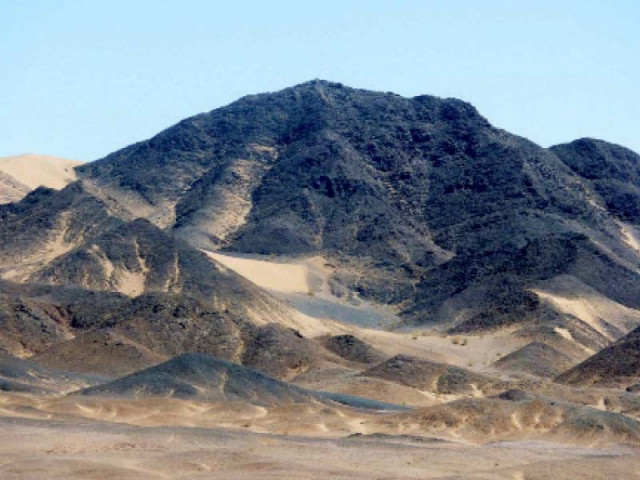SC asked to look into Reko Diq deal
Senior metallurgist calls for setting up smelters, refineries in Balochistan

A senior metallurgist has appealed to the Supreme Court to direct the government to issue information related to Reko Diq copper and gold project.
He also called for smelters and refineries to be set up in Balochistan and for only finished goods to be allowed for export outside the province.
“Smelters and refineries must be set up in Balochistan and only export of finished goods be allowed,” said Abbas Akberali in a petition to the Supreme Court of Pakistan.
He said that as a citizen of Pakistan, he has the right to know about the details of Reko Diq agreement. He pleaded the Supreme Court to confirm whether the agreement contains a clause that smelters and refineries must be set up in Balochistan and only finished goods be exported out of the province.
However, some questions arise when one discusses the Reko Diq copper and gold mines. The foremost is whether Pakistan has the technology to extract the ore and then refine it.
In addition, the mining job is done in various stages and every stage requires a different variety of technical expertise. Therefore, the entire mining process is not carried out by one company but by many companies, each of whom specialises in one particular stage.
For example, the company which extracts the ore may not be able to refine the raw material. Accordingly, there would be an intermediary company that would refine copper or gold and then it would go to the corporations that produce the finished goods.
The second crucial question is whether there are investors who are willing to take the risk of investing billions of dollars
in Balochistan.
Pakistan Association of Large Steel Producers (PALSP) Secretary General Syed Wajid Bukhari, while talking to The Express Tribune, underlined that these questions are important but only raw material extraction will not prove beneficial to Balochistan. The province is already backward and the locals are in dire need of jobs and gainful employment.
These companies can be required to set up plants to at least add some value to the raw material, if not produce finished goods, he urged.
Akberali pleaded to the Chief Justice that in order to protect the interest of Balochistan and secure economic prosperity of the country, it is necessary to allow only finished goods export out of the country, produced from the extremely precious mineral deposits not only in Balochistan but all over Pakistan, including those from the northern areas of the country.
The original Reko Diq agreement that was signed in 1993 has been at a standstill since 2011. This is because of the rejection of the mining lease application in November 2011 by the Balochistan government on the grounds that smelting and refining should be done in Pakistan, as opposed to the original agreement where smelting and refining was proposed to be done outside the country.
Earlier this year, with an out-of-court settlement of the longstanding dispute, the reconstitution of the project was announced by former finance minister Miftah Ismail and Barrick Gold Corporation President and CEO Mark Bristow.
According to the new agreement, the undeveloped copper-gold deposits will be owned 50% by Barrick, 25% by Balochistan province and 25% by major Pakistani state-owned enterprises (SOEs). As per the agreement, Balochistan will get 25% share in the project and also a 5% royalty.
It remains unclear whether Barrick Gold will set up a refinery in Pakistan or take precious metals out of the country like the Chinese operator did in the Saindak project. Crucially, there must be a cap on excavation, especially if the company is allowed to export the minerals in their raw form.
The fact remains that the Reko Diq natural resource reserves are of great importance and have the potential to change the destiny of the people of Balochistan. The mineral deposits of Balochistan, consisting of extremely precious and semi-precious metals, are worth hundreds of billions of dollars, if not trillions.
Published in The Express Tribune, December 3rd, 2022.
Like Business on Facebook, follow @TribuneBiz on Twitter to stay informed and join in the conversation.



















COMMENTS
Comments are moderated and generally will be posted if they are on-topic and not abusive.
For more information, please see our Comments FAQ